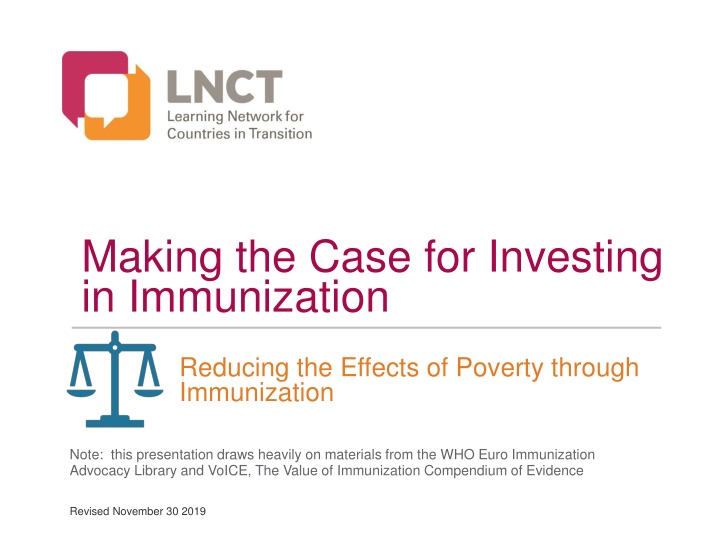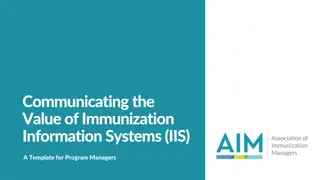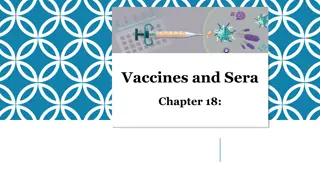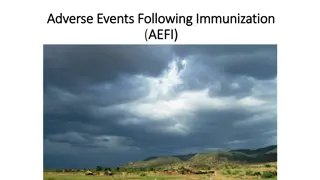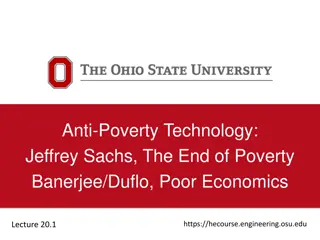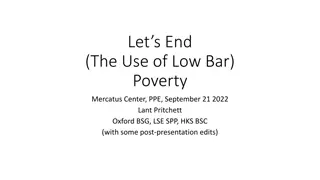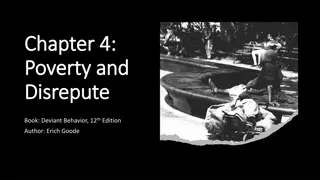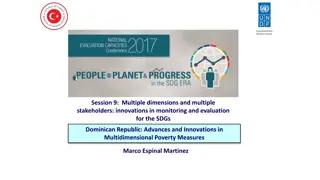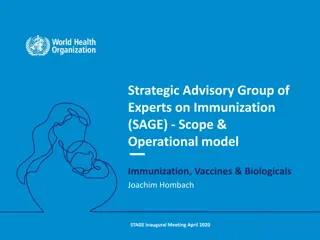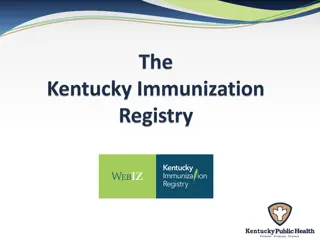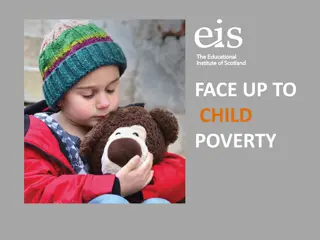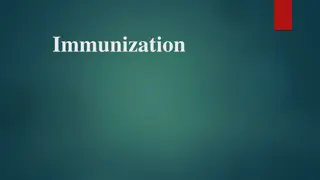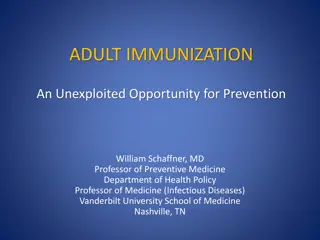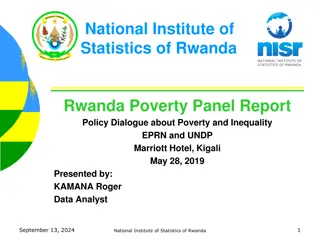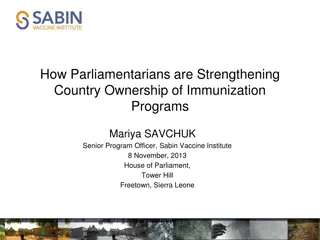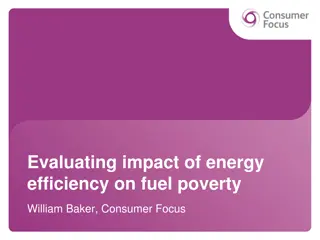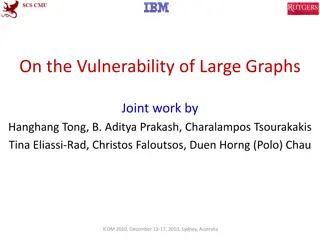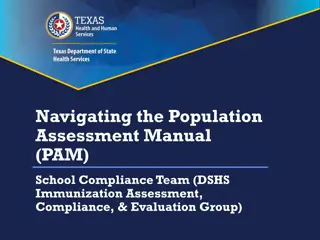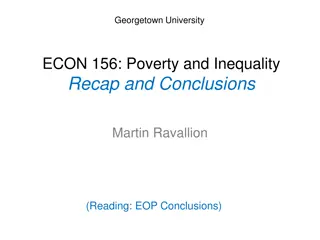Investing in Immunization to Reduce Poverty
Immunization is a crucial pro-poor health intervention that not only prevents diseases like measles but also helps in reducing poverty by avoiding health expenditures and loss of wages. Various studies have shown the equity impact of immunization on averting deaths and medical impoverishment in developing countries. Immunization serves as a cost-effective strategy for improving health outcomes, enhancing cognition, educational attainment, and nutritional status, making it a valuable investment in achieving universal health coverage and reducing the burden on health systems.
Download Presentation

Please find below an Image/Link to download the presentation.
The content on the website is provided AS IS for your information and personal use only. It may not be sold, licensed, or shared on other websites without obtaining consent from the author.If you encounter any issues during the download, it is possible that the publisher has removed the file from their server.
You are allowed to download the files provided on this website for personal or commercial use, subject to the condition that they are used lawfully. All files are the property of their respective owners.
The content on the website is provided AS IS for your information and personal use only. It may not be sold, licensed, or shared on other websites without obtaining consent from the author.
E N D
Presentation Transcript
Making the Case for Investing in Immunization Reducing the Effects of Poverty through Immunization Note: this presentation draws heavily on materials from the WHO Euro Immunization Advocacy Library and VoICE, The Value of Immunization Compendium of Evidence Revised November 30 2019
Purpose Of Slide Set Purpose: to give LNCT members a set of ideas and graphics for arguments for investment in immunization Some material intentionally repeated because it can be used for different arguments Slides intended to be picked out and adapted for different audiences (for example, MOF, Parliamentarians, others) and contexts www.lnct.global | 2
Immunization is a pro-poor intervention Prevention of antimicrobial resistance Platform for outbreak preparedness Entry point for health service delivery and core component Universal Health Coverage Reduced future burden on health system Productivity gains Improved health, reduced mortality Better cognition, educational attainment, nutrition Best buy for health Pro-poor intervention Adapted from Palu, T. (2016). Sustainable Immunization Through Universal Health Coverage. World Bank SAGE Meeting.
Immunization Is A Pro-poor Health Intervention Key Message The poor are more likely to develop a vaccine-preventable, such as measles, and less likely to recover once the disease Is contracted. So the poor stand to benefit the most from immunization. Furthermore, health expenditures and loss of wages from immunization-preventable diseases cause many households to fall into poverty. By preventing these losses, immunization provides a kind of financial risk protection, especially to the poor. In most countries, immunization reaches a larger share of poor households than most other health interventions. www.lnct.global | 4
Immunization is a Pro-poor Health Intervention: what the data show (1) A recent study of 41 low and middle income countries1 looked at the health and equity impact of immunization over the period 2016- 2030. 5 of the 15 LNCT countries were included in the analysis: Armenia, Ghana, Indonesia, Nigeria, and Timor-Leste (included because of data availability from Demographic and Health Surveys). 1Chang A, Riumall-Herl C, Perales N, Clark S, et al. The Equity Impact Vaccines May Have On Averting Deaths and Medical Impoverishment in Developing Countries. Health Aff (Millwood) 2018; 37(2). www.lnct.global | 5
Immunization is a Pro-poor Health Intervention: what the data show (2) The poor would gain the most from immunization both in terms of health gains and economic impact Health gains: 25% of the 36 million future deaths averted from immunization would be in the poorest 20% of the population. Measles vaccine would avert the most deaths (61%), followed by Hepatitis B (18%) and HPV (7%). Economic impact: Immunization would prevent 24 million people from falling into poverty from medical impoverishment. Hepatitis B averts the largest number of cases (14 million), followed by measles (5 million) and Meningitis A (3 million). Policy message: immunization is an important measure to improve equity and reduce poverty www.lnct.global | 6
Using Data To Show That Your Countrys Immunization Achieves Clear Economic Results (and more needs to be done) Data Data Requirements Hypothetical Analysis Example: OOP health spending by wealth quintile; immunization coverage by wealth quintile Poor children are exposed to vaccine-preventable illnesses considerably more than the children of better off families. High out- of-pocket health spending and impoverishment from health spending also affects poor families more. Immunization provides financial risk protection by reducing expenditures associated with vaccine- preventable diseases www.lnct.global | 7
VoICE is an excellent source of information on the value of immunization https://immunizationevidence.org/ Easy to use and regularly updated www.lnct.global | 8
